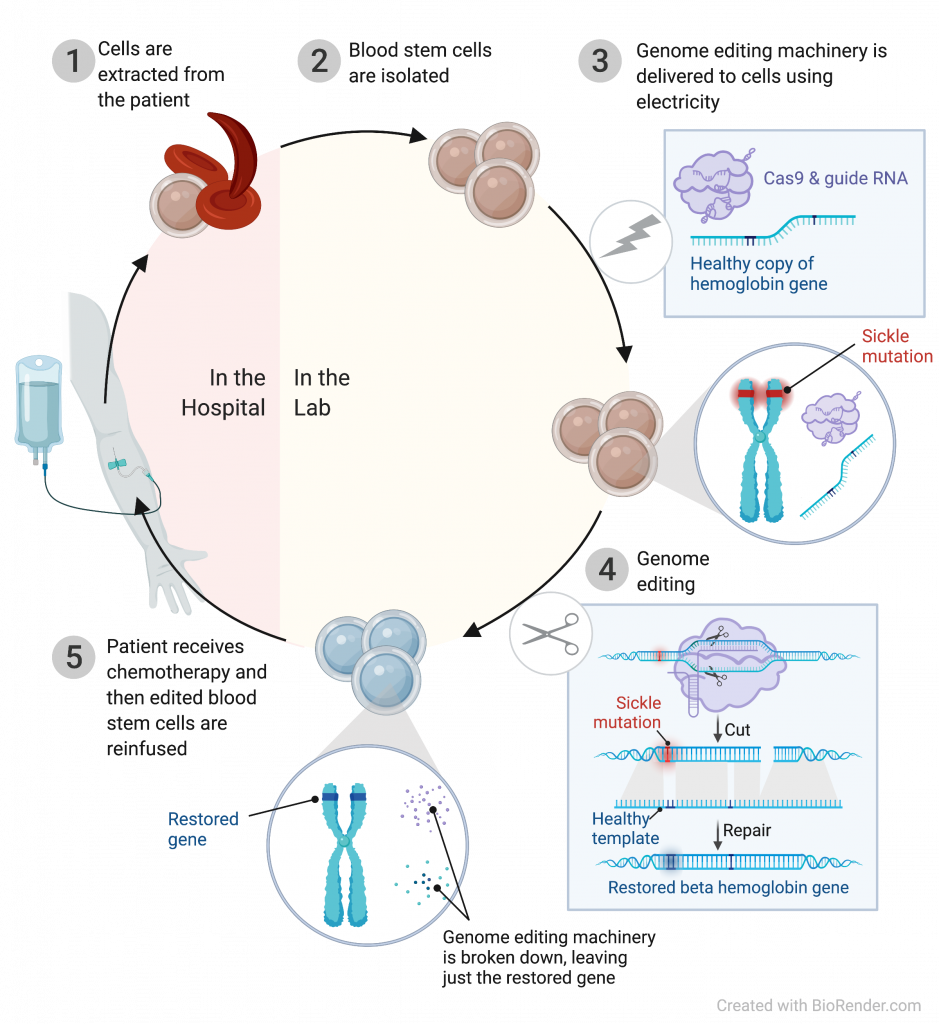High-level correction of the sickle mutation is amplified in vivo during erythroid differentiation
Magis W, DeWitt MA, Wyman SK, Vu JT, Heo S-J, Shao SJ, Hennig F, Romero ZG, Campo-Fernandez B, Said S, McNeill MS, Rettig GR, Sun Y, Wang Y, Behlke MA, Kohn DB, Boffelli D, Walters MC, Corn JE, and Martin DIK. iScience
(2022)
